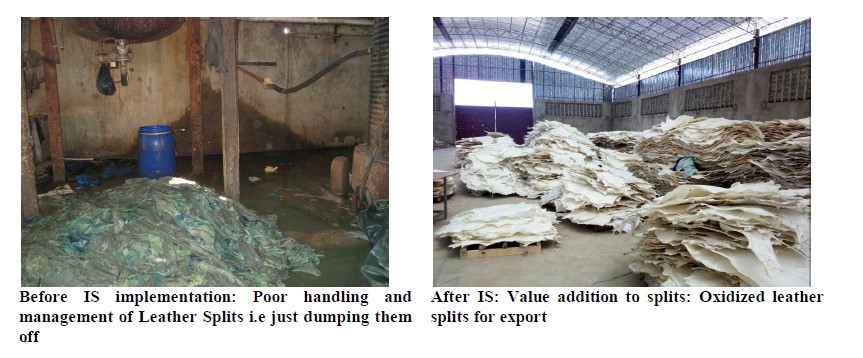Circular Economy
The circular economy is a system where materials never become waste and nature is regenerated. In a circular economy, products and materials are kept in circulation through processes like maintenance, reuse, refurbishment, remanufacture, recycling, and composting. The circular economy tackles climate change and other global challenges, like biodiversity loss, waste, and pollution, by decoupling economic activities from the consumption of finite resources.
The circular economy is based on three principles, driven by design:
- Eliminate waste and pollution
- Circulate products and materials (at their highest value)
Regenerate nature - Under circulr economy, UCPC has implemented several projects such as industrial symbiosis
Enhancing Resource Productivity and Environmental Performance of enterprises in 6 African countries through the concept of Industrial symbiosis
The project was implemented in 6 African countries, led by African Roundtable for Sustainable Consumption and Production (ARSCP) with funding from European Union under SAG. Uganda Cleaner Production Centre (UCPC) was the country delivery partner in Uganda.
The project worked on developing industrial symbiosis within and among companies. Industrial Symbiosis is an association between two or more industries where the waste (as one of this type of symbiotic relationship) generated by one industry can be used as a raw material by another industry. By collecting data and assessing the various needs of MSMEs, opportunities for implementation of a symbiotic relationship between these MSMEs can be determined and thus matched. This can reduce on the burden of waste handling for some MSMEs and inadequate raw material supply for others.
Over 100 MSMEs from different regions of the country were trained on the concept of Industrial symbiosis. Out of which 60 companies participated in the in-depth waste assessments and forty-five synergies were created with 67,309 tons of wastes exchanged. The companies were able to save USD 1,532,663.00 on waste disposal and eliminate CO2 emissions amounting to 320tones/year. The symbiotic synergies triggered an investment value of USD 1,408,078. From the exchanged wastes, 18 new products were developed. Examples of the products are: compost, boiler fuel, animal feeds, rubber sandals, paper egg trays, reprocessed oil, soap, and cement bricks. The project contributed to the creation of 301 jobs.
The Government of Uganda highly commended the Industrial symbiosis action and UCPC was invited to make a technical presentation on Industrial Symbiosis during the 6th Annual East Africa waste management conference Organized by NEMA Uganda in Uganda from 30th – 31st August 2018. During the conference, emphasis was put on Industrial symbiosis as the best way for industries to manage wastes sustainably and waste handling companies need to rethink their strategies from disposing off the waste to adding more value to generate new products.

